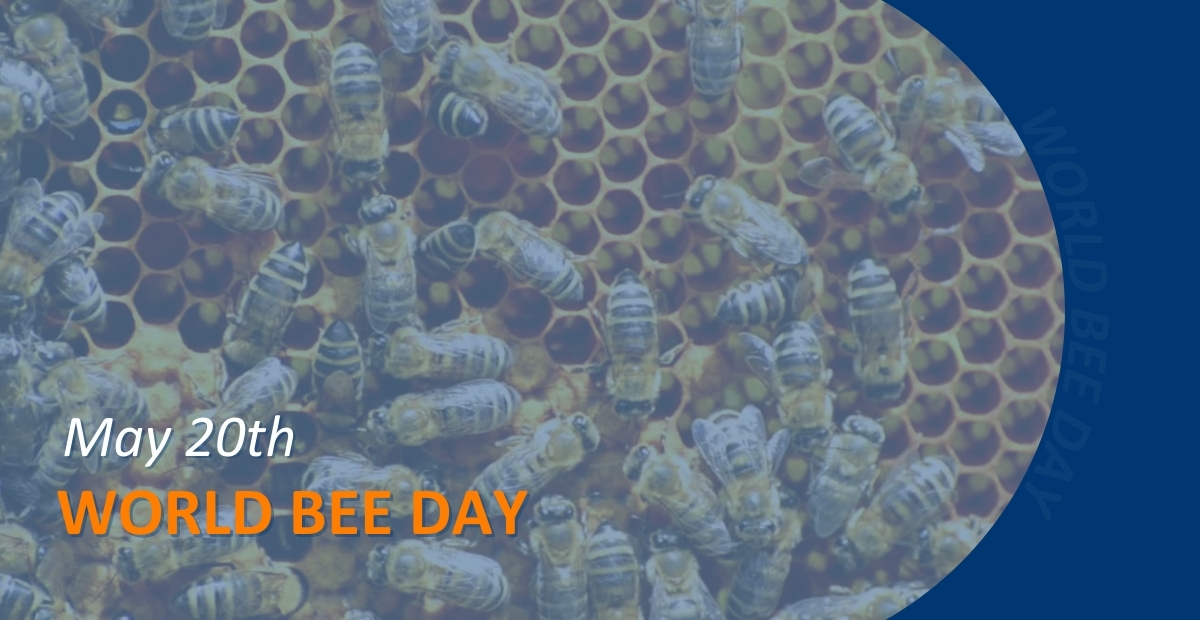OVERVIEW
World Bee Day is celebrated to raise awareness of the importance of pollinators, the threats they face and their contribution to sustainable development.
It’s marked on May 20th to commemorate the birth anniversary of Slovenian beekeeper Anton Jansa, the forefather of modern beekeeping; on this day, events are held to educate the general public, with a special emphasis on how the bee population is under threat and we must protect them and the other pollinators.
The initiative was taken by the Slovenian Beekeepers’ Association, but now it’s celebrated all over the world.
HISTORY OF WORLD BEE DAY - TIMELINE

FIVE INTERESTING FACTS ABOUT BEES
A bee doesn’t produce much honey – A bee produces about 1/12th to 1/8th of a teaspoon of honey in its lifetime.
The Queen bee produces many eggs – The Queen bee lays around 2000 eggs a day.
Bees love blue – Bees love this color, and that’s why they cluster around rosemary and lavender flowers.
There are many types of bees – There are around 20000 different varieties of bees
The color of honey – The color of honey is determined by the flower it was foraged from.
WHY IS WORLD BEE DAY IMPORTANT?
Bees are important for many notorious reasons, for example:
- They’re the most common and efficient pollinators that contribute to crop and plant cultivation;
- They’re crucial in the fight against world hunger and poverty;
- Recent research shows that they are in danger, and we are required to intervene to prevent further declines in the bee population.
CONCLUSION
World Bee Day is observed across the world on May 20th to educate the public about the importance of bees, especially on their role as pollinators and how they help revive forest covers, and beekeeping.
Source: https://nationaltoday.com/



